Getting screened for Mash
If you're learning you could be at risk for MASH (metabolic dysfunction–associated steatohepatitis), you may be asking yourself: Should I get screened? Initiating a conversation with your doctor about screening may be easier than you think. SPEAK UP, SPEAK LOUD, and SPEAK NOW.
Screen so it's seen. Liver screening can reveal MASH
The development of noninvasive tests has introduced options for screening and monitoring MASH. With regular testing, you and your health care professional (HCP) can monitor your liver health and work to prevent future complications. The American Association for the Study of Liver Diseases recommends that, depending on risk factors, you may need to be reassessed every 1 to 3 years. Talk to your HCP about whether you should be screened for MASH.
What are noninvasive tests, and what can they tell us?
There are noninvasive testing options for fatty liver disease and MASH progression. Noninvasive tests can provide your HCP with important information about how fatty liver disease is affecting your liver. Noninvasive tests can be used for:
- Screening to identify people who are at risk for MASH
- Diagnosing MASH
- Grading MASH, or assessing how much it has progressed
- Diagnosing cirrhosis (severe liver scarring) in people with advanced stages of MASH
The amount of scarring detected in the liver can be used to measure how much MASH has progressed:
Stage 0:
No liver scarring
(MASH without liver scarring)
Stage 1:
Mild liver scarring
Stage 2:
Moderate liver scarring
Stage 3:
Advanced liver scarring
Stage 4:
Severe liver scarring, referred to as cirrhosis
The speed of worsening varies, but some people have rapidly progressed from no scarring (stage 0) to advanced scarring (stage 3 or 4) in ~6 years.*
As fatty liver disease progresses to MASH, which can worsen from one stage to the next, you may not notice or feel any new symptoms.
*Combined data from 52 patients from multiple studies.
Noninvasive testing for MASH
FIB-4 (Fibrosis-4) is often the first step recommended for someone considered to be at risk for MASH. FIB-4 is a calculation used to assess your likelihood of advanced liver scarring, also known as fibrosis.
There are 4 pieces of information needed to calculate your FIB-4:
- Age
- AST (aspartate aminotransferase) level
- ALT (alanine aminotransferase) level
- Platelet count
AST and ALT are 2 types of liver enzymes that, when consistently elevated, may be a sign of MASH. Your AST, ALT, and platelet count are often included in routine blood work and may already be available in your medical records. If not, your HCP can easily order standard blood tests to check your enzyme levels.
Your FIB-4 score will help your HCP determine if additional tests may be needed.
If your FIB-4 results are elevated, additional testing is needed to assess whether MASH with advanced liver scarring is present. These follow-up tests generally fall into 2 categories:
Blood-based tests
Blood tests can help check for signs of liver damage or scarring without needing invasive procedures. Some tests, like the ELF™ (Enhanced Liver Fibrosis) test, specifically measure markers in the blood to estimate the amount of liver scarring. Your doctor may use this test or a combination of tests to assess your risk for MASH and advanced liver scarring.
Imaging-based tests
A test such as vibration-controlled transient elastography (VCTE), eg, FibroScan®, is a quick and painless way your doctor may assess liver stiffness. Results from image-based tests can give important clues about whether your fatty liver disease has progressed to MASH.
Your HCP may recommend a combination of blood- and imaging-based tests.
Cost and coverage
for MASH screening
Many major medical plans now cover the cost of screening, plus specialist visits if you’re diagnosed with the disease. You should contact your insurance provider for details specific to your coverage. Additionally, organizations like the American Liver Foundation may be able to help you locate affordable, and potentially free, testing services.
Get support for liver disease testing
The NovoDETECT® Liver Disease Testing Support program is designed to help commercially insured patients reduce potential out-of-pocket costs for noninvasive testing for a variety of Chronic Liver Diseases, including MASH. Eligible participants can pay as little as $25.†
†Terms and conditions apply.
The information provided is for educational purposes only.




